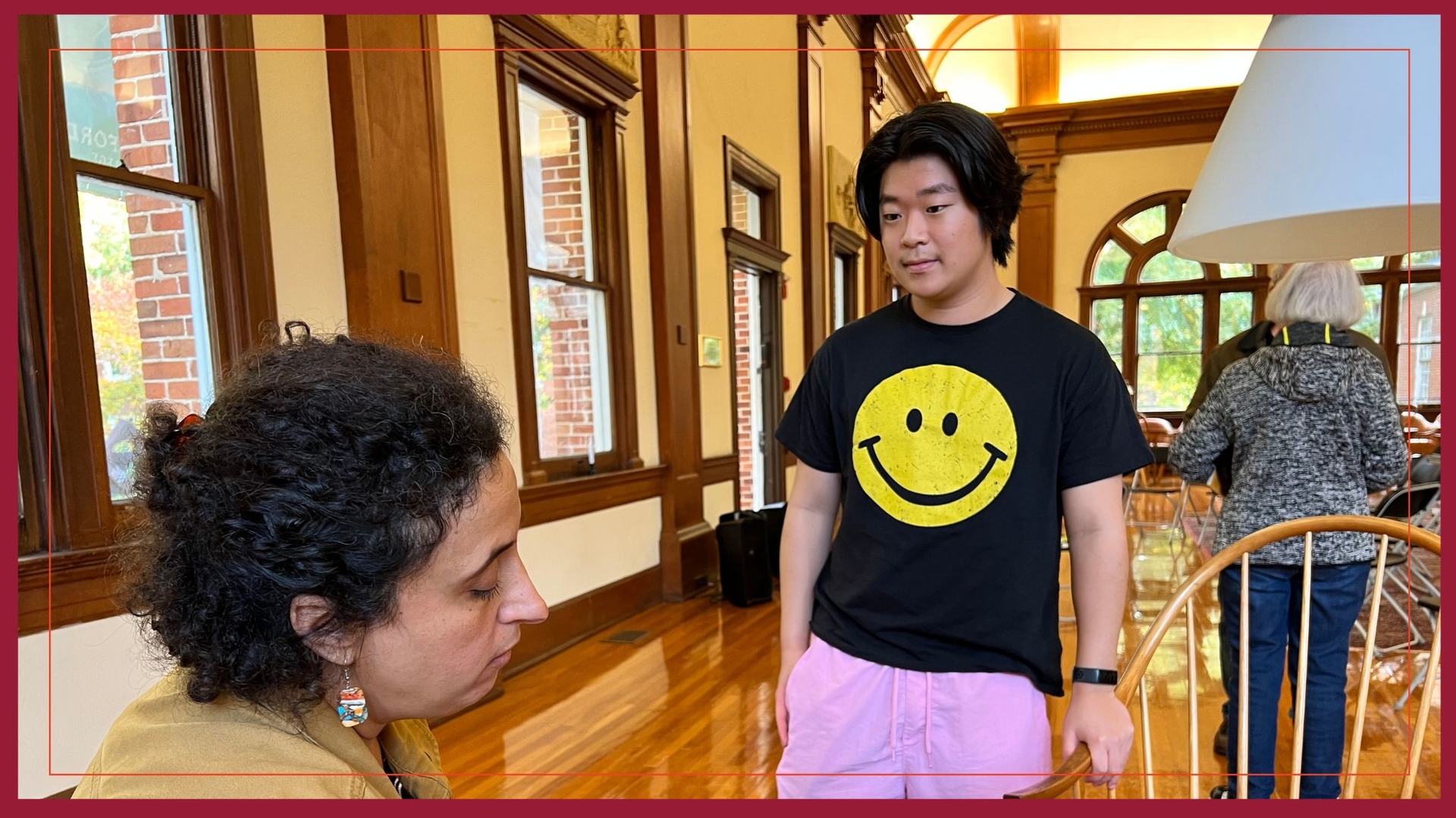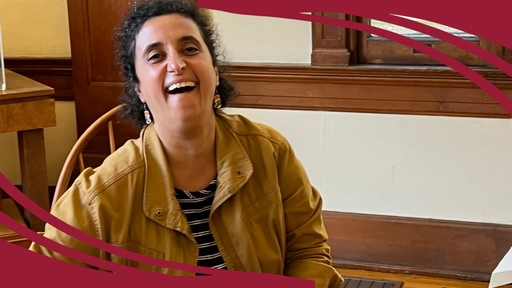
Before she sat down to write her book American Refuge, Lincoln Financial Professor of English Diya Abdo knew what she wanted to accomplish.
“I wanted to write a book that captured refugees from a truly individualized way,. The book is really focused on these individual stories, and these individual people and their very personal experiences.”
“I wanted to write a book that captured refugees from a truly individualized way,” she says. “The book is really focused on these individual stories, and these individual people, and their very personal experiences.”
Just as important, Diya knew what she did not want to do. She wanted to avoid exploiting the hardships and heartaches of the refugees she’s come to know as friends. “I didn't want to write a book that pandered to a spectacle of tragedy,” she says. At a book reading on Oct. 27 at Hege Academic Commons, Diya told her audience there’s enough literature out there about women of color that “creates a spectacle of tragic things.”
“I wanted something that really was grounded in dignity, grounded in agency that told things plainly, in ways that were personal to the experience of the person, that was truthful and honored their stories,” she says.
Diya is a second-generation Palestinian refugee born and raised in Jordan who founded the Every Campus A Refuge program. ECAR advocates for housing refugee families on college and university campuses and assisting them in resettlement. Guilford is the flagship institution for ECAR, which has 10 chapters across the country. The refugees whose stories appear in the book were guests at one time or another at Guilford.

Diya spoke to about two dozen students, friends and faculty colleagues about her book. She said she hopes the book will help shatter common myths about refugees, and she read passages from her book to refute those myths.
Diya told the audience the most damaging myth about refugees is that life in a new country should equate to happiness. “We hear that so often — why aren't you grateful to be here?” she says. “It is a very traumatizing experience already to be a refugee … and then to arrive in a country that you don't know.”
Diya says the new country might be safer, but can remain “a very lonely place.”
“You've just left your family behind,” she says. A lot of refugees actually experience depression, homesickness, loneliness for years after their settlement. (Relocating) might mean safety and security, it can also mean isolation, homesickness and a lack of belonging.”
August Hutchins ’26 (pictured with Diya, at top) was one of several students who attended Diya’s reading. He volunteers at ECAR and wants to teach some of the younger guests to read and write in English. “I thought the stories she read to us were so powerful,” he says. “It makes me more excited to want to help where I can.”

